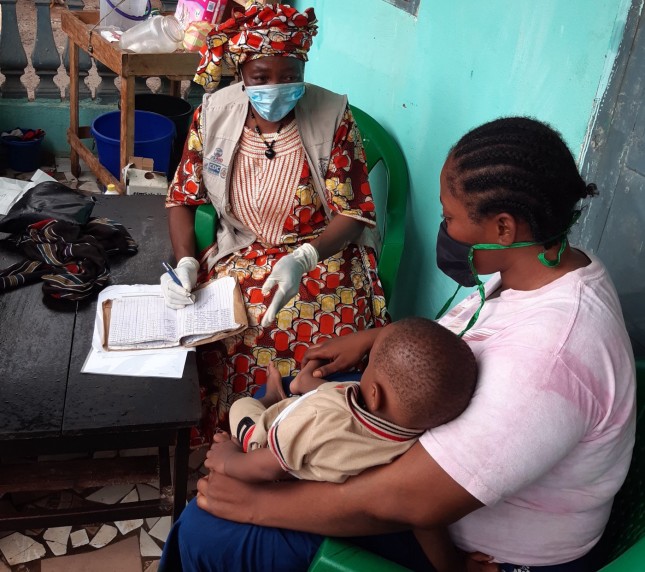-
Covid-19 // Dot-Mom // Reading Radar
Has Maternal Mortality Risen During the COVID-19 Pandemic? The Need For More Data
January 28, 2022 By Chanel Lee
Since its onset, the impact of the COVID-19 pandemic on maternal mortality has been a question of great concern. And yet, few empirical attempts have been made to capture the potentially profound impact of the pandemic on maternal deaths, particularly in resource-limited settings.
According to a 2020 study, the COVID-19 pandemic has the potential to greatly increase maternal mortality in low- and middle-income countries (LMICs). To quantify the disruption of maternal health interventions due to COVID-19, researchers modelled three possible scenarios of reductions in maternal health coverage (small, moderate, and large), in 118 LMICs. Small reductions in coverage (ranging from 9.8-18.5 percent) over a twelve-month period were associated with 24,400 additional maternal deaths, whereas large reductions in coverage (ranging from 39.3-51.9 percent) over twelve months were associated with 113,400 additional deaths. Based on their data, the researchers approximate anywhere from 2,030 to 9,450 additional maternal deaths per month in LMICs due to pandemic-driven decreases in maternal health coverage.
Limited maternal health care during the COVID-19 pandemic has indeed been shown in recent studies. A 2021 study found reductions in maternal health service utilization in 37 health facilities across six LMICs, as a result of the pandemic. From March to December 2020, first antenatal care visits dropped by 32 percent, and facility-based deliveries decreased by 16 percent, overall. Another 2021 study found similar reductions in maternal health service uptake across eight sub-Saharan African countries. Antenatal care visits, institutional deliveries, postnatal care visits, and family planning consultations significantly decreased for most countries.
These studies are evidence to the predicted decrease in maternal health coverage during the pandemic, but are not evidence to an increase in maternal deaths in LMICs. Research on maternal mortality in LMICs during the pandemic does exist, and a 2021 systematic review of 40 studies on pregnancy outcomes during the pandemic found an increase in maternal death in two LMICs. Among those reporting such an increase, one study also observed a significant rise in high-risk pregnancy admissions during COVID-19 times compared to pre-COVID-19 times. These estimates of maternal morbidity and mortality are alarming, especially given that LMICs already accounted for 94 percent of all maternal deaths worldwide prior to the pandemic. While this review is limited by the lack of organized data on this topic, it does offer some insight into how the pandemic has affected maternal and perinatal health in LMICs. Ultimately, these findings strongly suggest that disruptions to maternal health care during the COVID-19 pandemic are an important factor contributing to the rise in maternal mortality.
Taken together, the findings of these studies reveal two important takeaway points. Firstly, the COVID-19 pandemic has placed an added burden on countries that already face challenges in providing maternal health care. Secondly, literature assessing the relationship between COVID-19 and maternal mortality in LMICs is sparse. Although these studies provide some evidence, the impact of COVID-19 on maternal deaths is still not well-defined or -understood. This lack of data highlights the need for further focus and investigation on this topic. While the exact number of maternal deaths attributable to the COVID-19 pandemic is unknown, the reduced coverage in essential services during the pandemic highly suggests that the health of pregnant individuals has been compromised, thereby contributing to adverse pregnancy-related outcomes, including death, worldwide.
Read More:
- COVID-19 has elevated the rates of unintended pregnancies in low- and middle-income countries
- COVID-19 has upended maternal and child health services in South Asia
- Multisectoral collaboration helps countries address COVID-19’s health care disruptions
Sources: The Lancet Global Health, International Perspectives on Sexual and Reproductive Health, BMJ Global Health, Health Policy and Planning, International Journal of Gynecology & Obstetrics, World Health Organization.
Photo Credit: Woman holding baby sitting with health care worker. Credit: USAID StopPalu+
 A Publication of the Stimson Center.
A Publication of the Stimson Center.



